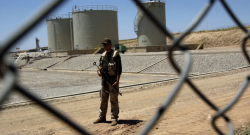Queen Elizabeth II: What her death means to Malaysia
- 2022-09-14 15:23:50


 Pierre Rayer: Art, Science, and Happiness: The Universal Mission of Transmission to Future Generations through Patronage at the Louvre Abu Dhabi
Pierre Rayer: Art, Science, and Happiness: The Universal Mission of Transmission to Future Generations through Patronage at the Louvre Abu Dhabi Ahly crowned Super champions after dramatic extra-time win over Modern Future FC
Ahly crowned Super champions after dramatic extra-time win over Modern Future FC Yemeni Honey..A Development Wealth Threatened By Conflict And Climate Change
Yemeni Honey..A Development Wealth Threatened By Conflict And Climate Change California wildfires: Millions warned of possible power cut
California wildfires: Millions warned of possible power cut Central African rebels launch attacks near capital
Central African rebels launch attacks near capital Haaland and Guardiola in debate after Manchester City's narrow victory
Haaland and Guardiola in debate after Manchester City's narrow victory At least two killed by security forces outside Lanaz refinery near Iraq’s Erbil
At least two killed by security forces outside Lanaz refinery near Iraq’s Erbil Yemen;'s Houthis Remove GPC Secretary-General Ghazi Al-Ahwal, Appoint Yahya Al-Ra’i as Acting Secretary-General
Yemen;'s Houthis Remove GPC Secretary-General Ghazi Al-Ahwal, Appoint Yahya Al-Ra’i as Acting Secretary-General UN Chief Urges End to ‘Nightmare of Violence’ in Sudan
UN Chief Urges End to ‘Nightmare of Violence’ in Sudan UAE Condemns Israeli Attacks on Syrian Territory
UAE Condemns Israeli Attacks on Syrian Territory
